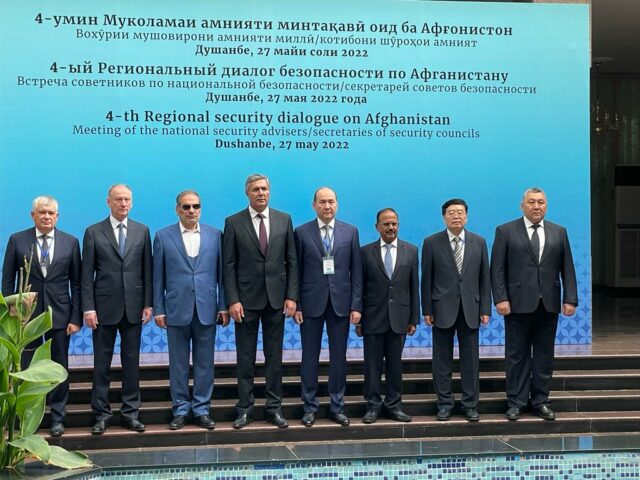NEW DELHI: The special relationship that India has had with the people of Afghanistan over centuries will guide India’s approach; nothing can change this. With these words National Security Adviser (NSA) Ajit Doval underlined India’s policy and approach towards Afghanistan. And to dispel any doubts, Doval drove home the point: “India was and is an important stakeholder in Afghanistan”. He was speaking at the fourth Regional Security Dialogue on Afghanistan held in the Tajik capital of Dushanbe.
Over the decades, India has focused on infrastructure-building, connectivity and humanitarian assistance in Afghanistan, Doval told the gathering. After August 2021, India has already provided 17,000 tonnes of wheat (of the 50,000 tonnes it has committed), 500,000 doses of Covaxin, 13 tonnes of life-saving medicines and winter clothing as well as 60 million doses of polio vaccine, he added.
Attended by the NSAs of Tajikistan, India, Russia, Kazakhstan, Uzbekistan, Iran, Kyrgyzstan and China, the meeting comes six months after New Delhi hosted the third edition of the Dialogue. The gathering, which discussed the situation in the war-torn country, highlighted the need to find ways to ensure peace and stability in Afghanistan and combat risks from terrorism emanating from the region.
“There is a need for all present at the Dialogue to enhance the capability of Afghanistan to counter terrorism and terrorist groups which pose a threat regional peace and security,” said Doval.
Nine months after the Taliban seized power in Afghanistan and against the backdrop of the group’s autocratic style of functioning, Doval made a strong pitch, saying the foremost priority should be right to life and a dignified living as well as protection of human rights of all. “Assistance should be accessible to all; respect for all obligations under international humanitarian law should be ensured.”
He underscored the need for an inclusive government that represents all sections of Afghan society, including women and minorities.





